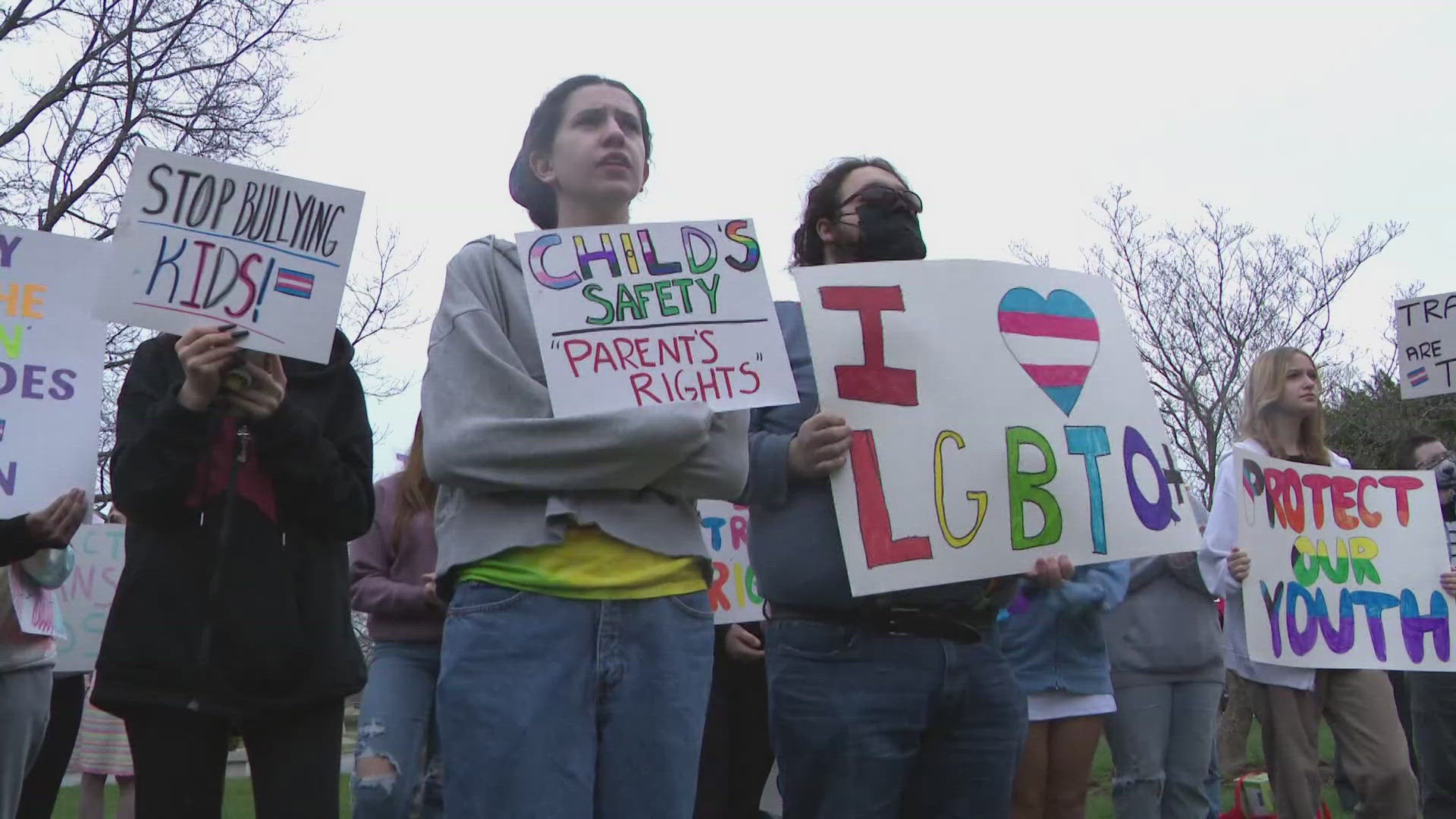WASHINGTON — The United States Supreme Court heard arguments Wednesday in a case that could impact transgender kids across the country. It revolves around a law passed by the Tennessee legislature and upheld in a federal appeals court that blocks hormone and puberty blocker therapies for transgender youth seeking to treat dysphoria.
Arguments went past the two-hour mark on Wednesday. Five conservative justices voiced varying degrees of skepticism over arguments made by the Biden administration and Tennessee families challenging the ban. Conservative Justice Neil Gorsuch, who wrote the majority opinion protecting transgender workers from job discrimination in 2020, has yet to say anything.
The court’s three liberal justices seemed firmly on the side of the challengers.
The case is expected to set a precedent on how transgender issues may be seen by federal institutions. It could also be a test of the Dobbs decision, revealing the extent to which it gives state lawmakers the power to make decisions regarding healthcare access for families.
Bean Chapman, an advocate with the Tennessee Equality Project, said Tennessee's current law unfairly targets transgender youth, preventing them from accessing gender-affirming care while allowing cisgender children access to the same treatments.
"Trans and nonbinary youth who do, versus do not receive gender-affirming care — it is overwhelmingly demonstrated that gender-affirming care is beneficial for these people," they said.
Lucas Cameron-Vaughn, from the American Civil Liberties Union, echoed those arguments. In previous courts, the ACLU argued the state's law is a violation of the 14th Amendment and the Equal Protection Clause. The Biden administration also supports its case against the law.
"We argue that this law does not treat all people fairly and equally — that it unfairly targets transgender youth," he said.
Tennessee Attorney General Jonathan Skrmetti argued in a filing to the Supreme Court that the state has a constitutional right to regulate medical practices.
"Many doctors, states, and countries share Tennessee’s view on gender-transition interventions for minors; the federal government and others do not," he said. "This 'earnest and profound debate about the morality, legality, and practicality' of controversial medical practices can continue only if this court refrains from constitutionalizing one side’s position."
Several medical professional associations, including the American Medical Association and the American Academy of Pediatrics, oppose restrictions on gender-affirming care. They emphasized that gender-affirming care like puberty blockers and hormone treatments are only given after extensive discussions with families and other treatments for children facing depression and possible suicidality as a result of gender dysphoria.
They also said gender-affirming surgeries are rarely performed on transgender children.
Tennessee's law specifically blocks gender-affirming care if it is to treat gender dysphoria. Lawmakers including Republican Senator Jack Johnson, who introduced the bill at the start of the 2023 legislative session, said it is meant to protect children from making decisions that could impact their lives as they're developing.
He is also arguing that the state has a "compelling interest to protect children."
"We should love the kids, we should see that they get the mental treatments that they need and shepherd them through this difficult time until they become an adult. And when they become an adult, if they still wish to follow through on some type of medical procedure, they can do so," he said.
The Trevor Project, an LGBTQ+ nonprofit, said transgender and nonbinary youth report more than four times greater rates of suicide attempts compared to cisgender peers. It also conducted a study that found a link between anti-trans laws to suicide attempts among teens.
The court likely won't release its decision in the case over Tennessee's law for several months. When that happens, it could impact states across the country that passed restrictions on gender-affirming care for transgender youth. Until then, people nationwide are watching the court.
"There are people already waiting in line to get in. There are only 50 seats available," said Chapman.
The Associated Press contributed to this report.

